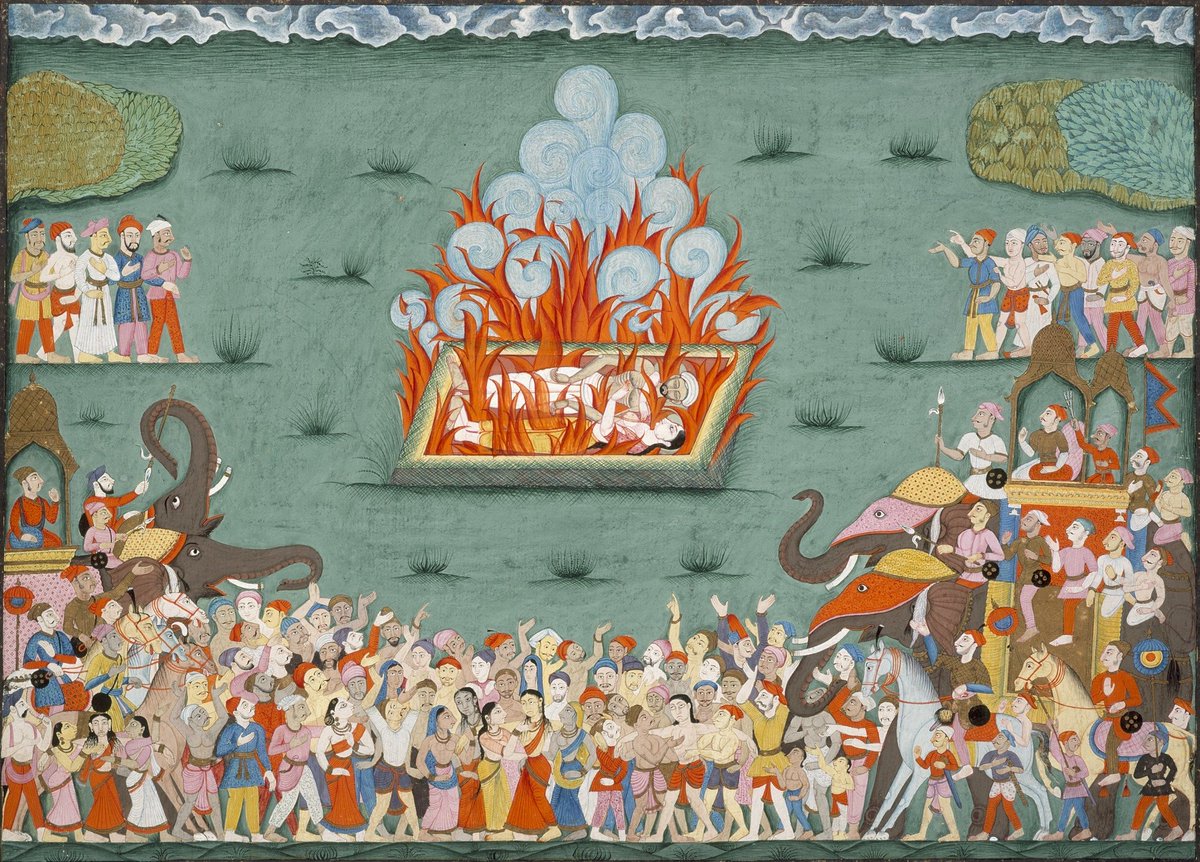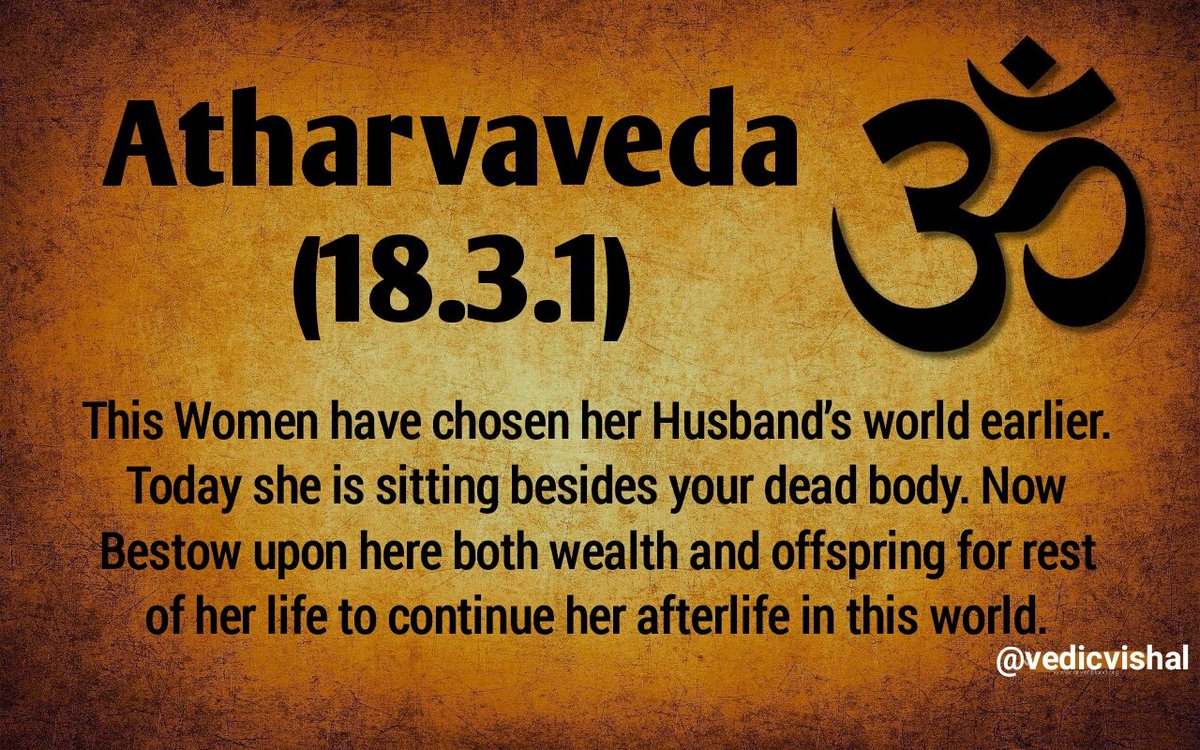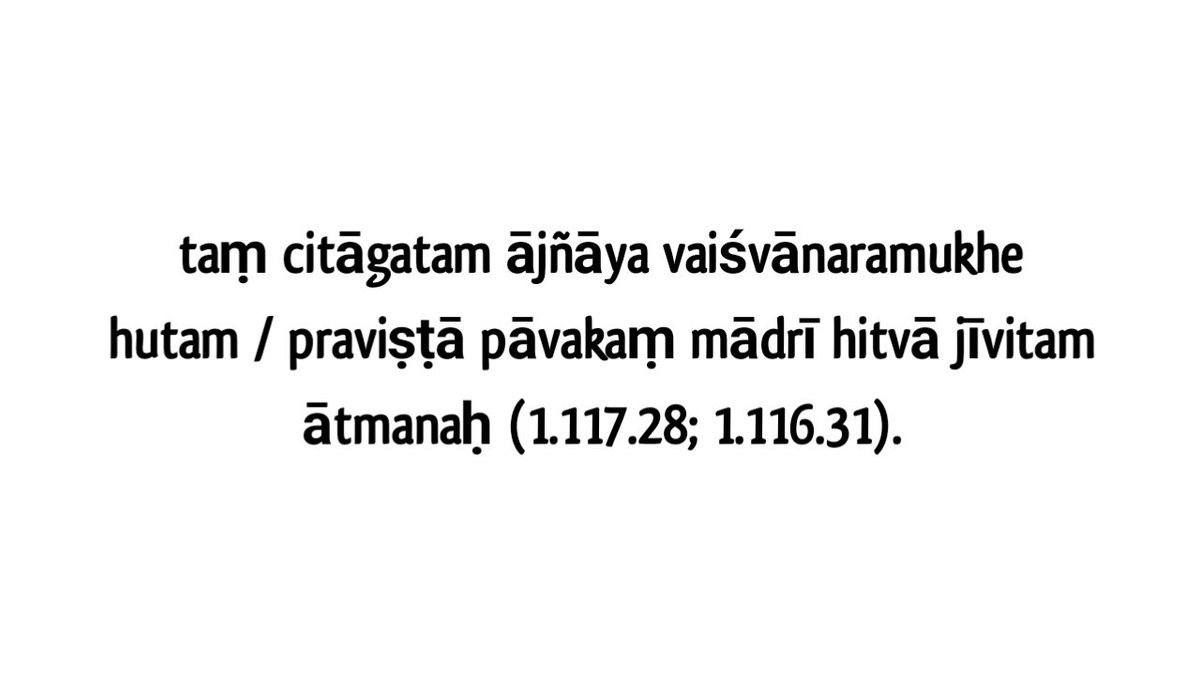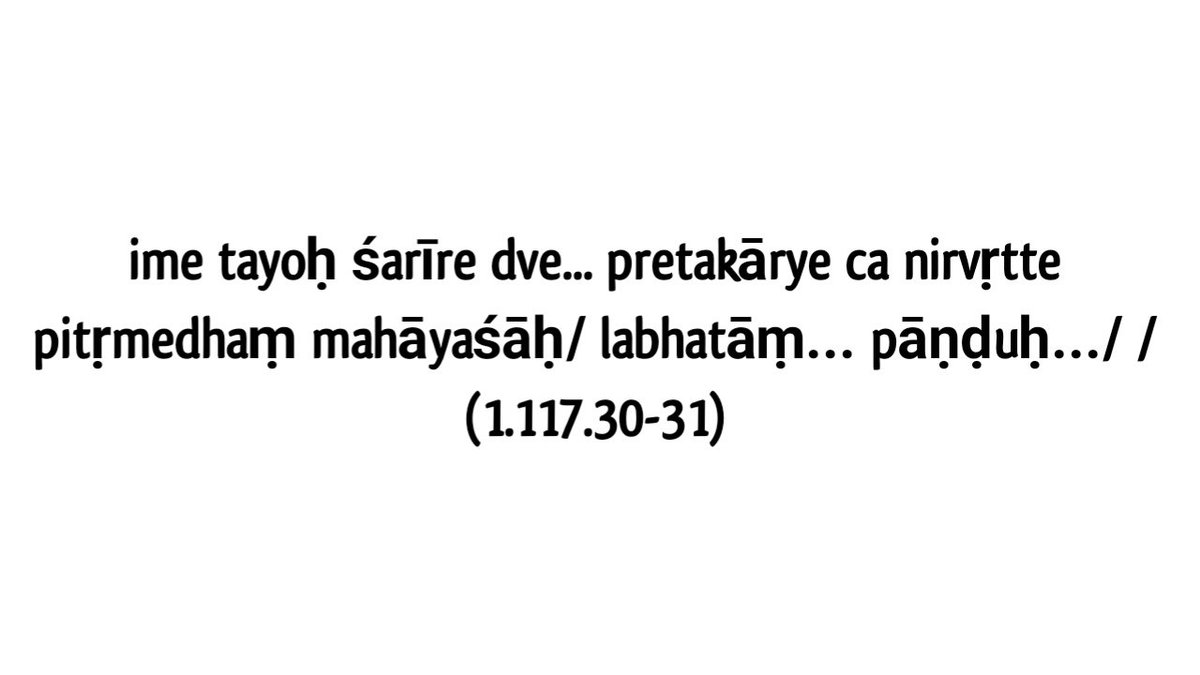Myth of Sati
The debate on Sati Pratha is nothing new. It is one among the most favorite topic discussed by H¡ndu-bashers. But is it true? off course not, H¡ndu scriptures does not mention anywhere about the practice of the burning or burial of widows with their dead husbands.
The debate on Sati Pratha is nothing new. It is one among the most favorite topic discussed by H¡ndu-bashers. But is it true? off course not, H¡ndu scriptures does not mention anywhere about the practice of the burning or burial of widows with their dead husbands.
In मनुस्मृति 2/6 Maharishi Manu said: वेदोऽखिलो धर्ममूलं स्मृतिशीले च तद्विदाम् । Means Vedas are the final authority in case of "Dharma".
There is not a single mantra in the entire four Vedas that supports Sati Pratha. Not even give a hint of supporting Sati Pratha.
There is not a single mantra in the entire four Vedas that supports Sati Pratha. Not even give a hint of supporting Sati Pratha.
Vedas advise a widow to return from her Husband’s corpse and live a happy life in her remarriage (if she wants). https://twitter.com/vedicvishal/status/1276414636678504449?s=19">https://twitter.com/vedicvish...
Dharma sutras or smrithis mentioned the duties of a wife but do not recommend sati pratha. Maharishi Manu describes wives as worthy of being worshipped that lamps lit the households and manu also says the wife is legal heir of the husband property after his death.
Manu Smriti 5.89 prohibits libation of water to those who commit suicide. Medhatithi, the eminent classical commentator of Manu Smriti, considers Sati as being against the Vedas precisely because Sati is suicide.
Suicide is classified as a bad death in Hindu scriptures.
Suicide is classified as a bad death in Hindu scriptures.
As far as I know no one has ever refuted Medhatithi’s criticism of the Sati Pratha. It is also remarkable that Medhatithi does not accept direct scriptural support for Sati Pratha.
Atharvaveda 18.3.1 is mostly quoted as Vedic Mantra which supports Sati Pratha but this mantra speaks about continuation of worldly affairs by Women in this world after her husband’s death. The Correct interpretation of this Mantra is:
It is usually believed that Mādrī committed satī after the death of Pāṇḍu in Mahabharatam. However, it is not so well known that immediately after this shloka we have another one.
But The latter shloka directly contradicts what is said in the preceding shloka. Acc. to this shloka the sages who, after the death of Pāṇḍu, brought Kuntī and the Pāṇḍavas to Hāstinapura, also brought with them the two dead bodies of Pāṇḍu and Mādrī.
They handed them over to the elders of the Kauravas and asked them to perform the due funeral rites ( Antim Sanskara).
Both these shlokas could not be true at the same time. Either Pāṇḍu was cremated on the Śataśṛṅga mountain and Mādrī mounted the funeral pyre, or cremation did not take place and the dead bodies were brought to Hāstinapura.
Clearly here, as in the above case, we have conflation of two different Shloka of the same incident. so according to my above analysis Madari never performed Sati. This is probably a later interpolation.
If Sati had indeed been a practice prevalent at that time then other queens of the Kuru vansh would have done the same after their husbands’ deaths.
For instance neither Satyavati nor Ambika and Ambalika committed Sati after their husbands King Shantanu and King Vichitravirya respectively.
Even there are no instances of sati practice in Ramayana and after the death of Dasaratha also his 3 wives did not commit sati.
Even there are no instances of sati practice in Ramayana and after the death of Dasaratha also his 3 wives did not commit sati.
In reality Sati Pratha is nowhere mentioned in Hindu scriptures. There is no advice of forceful widow burning in Vedas or other Dharmic shastra.
Om Namo Nārāyaṇaya
Om Namo Nārāyaṇaya

 Read on Twitter
Read on Twitter





